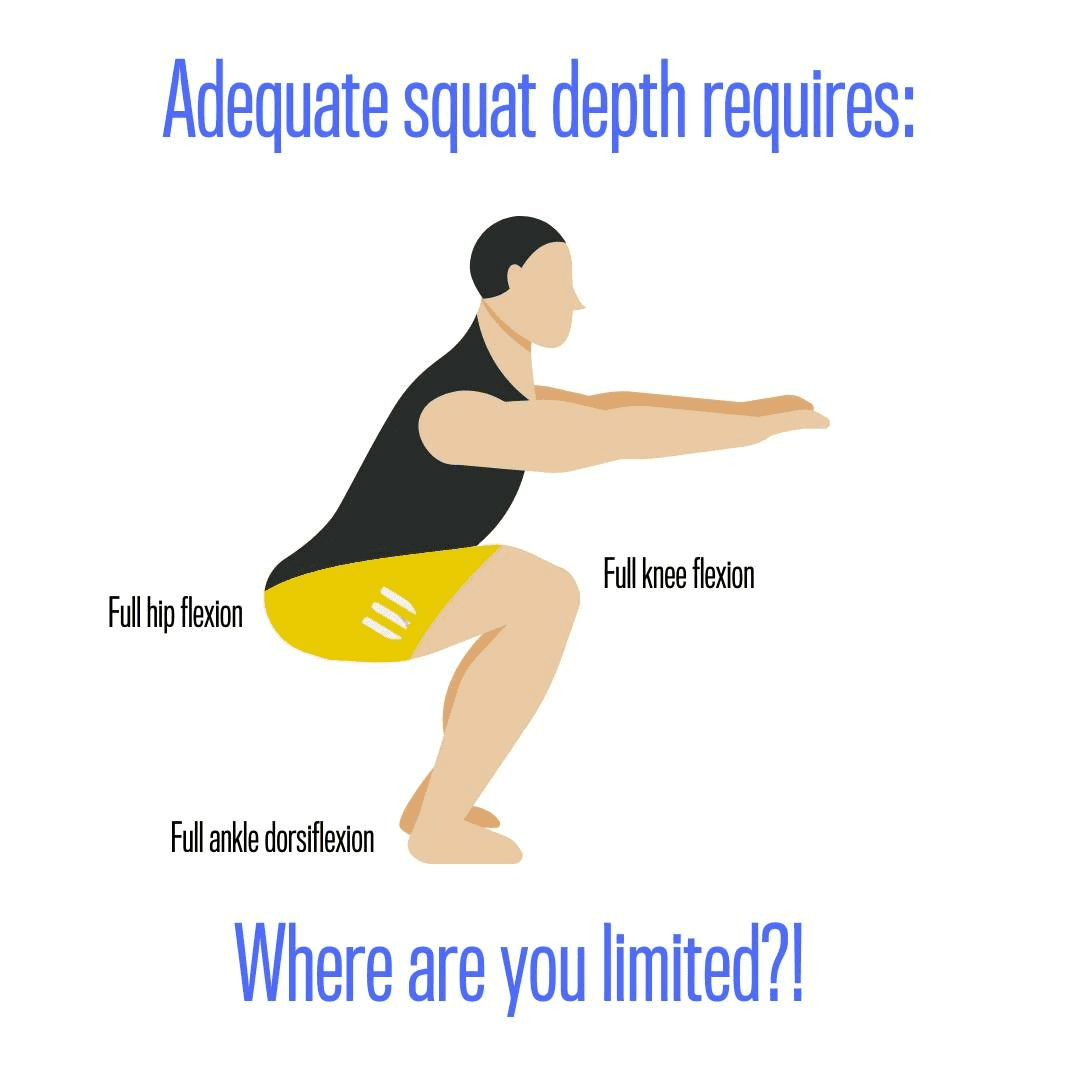
For many people, squatting is an ability that they lost long ago.
In modern society, unless you are taking steps to remain active, your body will punish you for not being active with little aches and pains. The typical sedentary life of most Americans leads to incredibly limited mobility.
Let’s take a look at some of the common causes of being unable to squat properly and the best remedies.
Table of contents
Lack of strength
If you can get down into a proper squat position but struggle to come up, you are likely dealing with a serious strength deficiency. Your leg muscles are very large and need to be worked in some way every day to ensure their longevity.
Solution
If you lack strength, you should consider taking up some basic strength training. Here are some great exercises that will help build strength:
Squats
Squats are the holy grail of leg exercises. To do them, just stand with your feet shoulder width apart and slowly lower yourself down until your quads are about parallel with the floor then pop up.
Many people struggle to do just a single body weight squat. This is okay, just use a table or chair as support and slowly work your way up.
Once you reach the point where you can do a body weight squat, that is great. But if you want to build serious muscle and strength, consider learning how to a barbell squat in a squat rack.

Lunges
This is another great movement that you can do with just your body weight or added weight as well.
To do these:
Start with feet shoulder width apart and take large step forward
Lower your body slowly towards the ground, as low as you can go
Straighten your legs and stand back up
Repeat with alternating legs

Glute Bridge
The glutes are a large muscle group that keeps you stable while standing up. You are going to want to do some resistance training for this area as well. For this, I recommend glute bridges. To do these:
Lye on the ground in a situp position
Lift your hips off the ground as high as you can
While your hips are raised, squeeze your glutes and hold

Plank
Your core does a lot of work during a squat to keep your core nice and rigid. If you have weak core muscles, you risk transferring lots of the load to your lower back where you could get injured.
To do planks:
Start at a pushup position
Rest your body on your forearms
Tighten your entire body, squeeze your abs and glutes
Hold for as long as you can

If you are disciplined with these exercises, you will start to see results very fast. Eventually, I recommend a gym routine in their life to keep their strength up to par.
Poor mobility
I would argue that most people nowadays lack proper mobility. Lots of this can be traced back to sitting all day long and not being active in your daily life. The main perpetrators here are going to be your ankles and hips. If you cannot get up or even get into the squatting position, it is likely one of these two.
If you cannot even get into a squat position or find it painful to do so, I would recommend taking up a daily stretching routine. There are tons of examples on youtube, but here are some of the best stretches you should be doing:

Hip flexor stretch
Get into a lunge position
Tilt your hips forward, think of thrusting while staying stationary
Squeeze your glute and hold this stretch

90-90 Stretch
Sit down on the floor
Extend one leg in front you bent at 90 degrees
Bend the other leg behind you also bent at 90 degrees
Lean forward and hold the stretch

Hip internal rotation
Sit down with your knees bent
Lean back, supporting yourself with your hands
With arms fully extended, move your legs from side to side
You may initially struggle to hit the full range of motion on some of these, but stay consistent and you will see improvements.
Keep in mind though that you are trying to undo years of sedentary habits. Your muscles took years to reach this state so it may take a few months before you see some life-changing results.
Physical limitations
While I do think that most people can directly address their pain with some of the exercises highlighted above, not all humans are the same. There are some cases where your body may simply be heavily limited.
Injury
Many people struggle with nagging injuries related to previous athletic involvement or physical labor. I personally know many former football players that struggle with chronic knee pain after a knee joint injury. If you had an injury that was never properly cared for, it would be wise to seek treatment from a physical therapist.
If this sounds like you, you can do the mobility work and strength training and see great results. However, you are always going to have that underlying issue that causes you problems.
Disease
If you have a condition such as arthritis, your joints may cause you immense pain no matter what precautions you take. If you fall into this camp, seek the advice of a physical therapist or specialist that can advise you.
Conclusion
Squats are a key functional movement that all humans should be able to do. If you cannot do them, that means your body is trying to tell you that there is something wrong.
Thankfully, there are a few easy steps you can take to fix this issue. If you stay consistent and dedicate a few months to strengthening and stretching weak muscles you should be squatting pain-free in no time.
FAQs
Why do I struggle to get up from the floor?
Why can I not squat?
Michael Kirkland, is a trusted fitness expert and founder of FitDominium. With his extensive experience and commitment to helping others, Michael is the go-to source for reliable fitness advice and recommendations.
